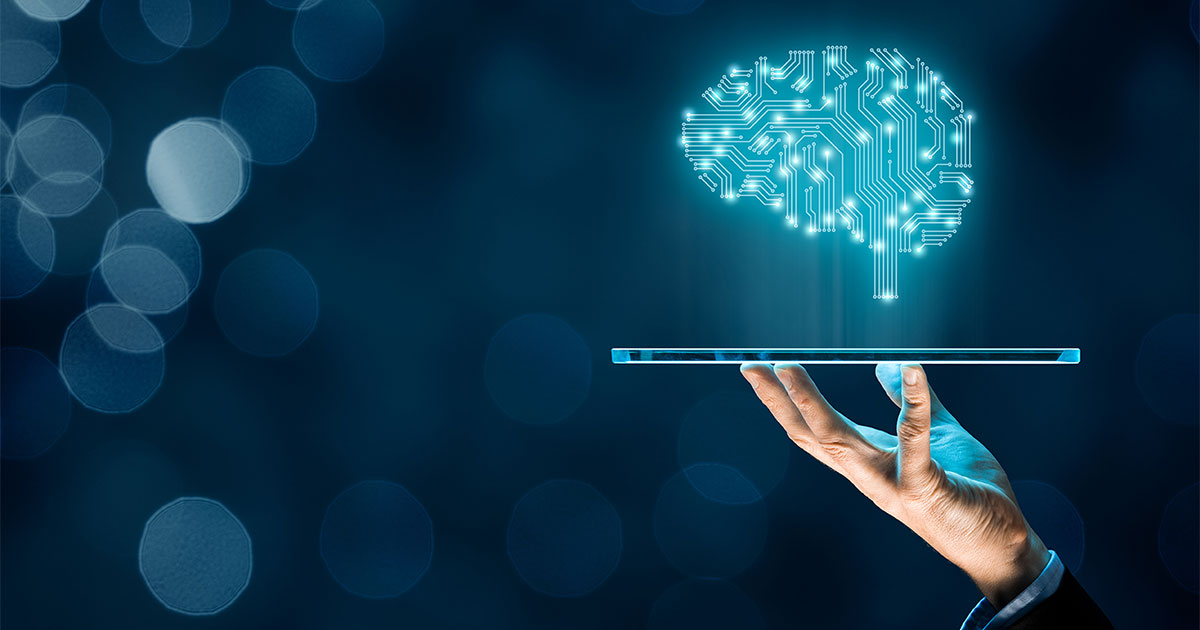Why AI Ethics Are So Important

Artificial intelligence is a powerful technology, and when she looks to its increasing use in the future, Andrea Roig MBA’21 is filled mostly with hope.
“If humankind can find a way to regulate and use AI ethically, I truly believe this technology will bring unparalleled advancement and benefits to our way of living,” she says.
But there is a rub, and it comes with the use of that one single word: ethically. AI may have amazing potential, but the fast-moving technology needs to be employed carefully and thoughtfully. “If it is not regulated, a lot of harm can be done,” says Roig.
Roig and other Babson students explored issues surrounding AI and other emerging technologies in the graduate course Digital Transformation. For some three decades, digital technology has continued its never-ending march of progress, remaking and disrupting a wide range of industries. Looking at the efforts of organizations to transform themselves digitally today, the course examined cases, heard from guest lecturers, and culminated in a case competition that investigated AI ethics.
It’s a timely topic. “I think the public is becoming more aware of the effect of algorithms and AI,” says Ruben Mancha, assistant professor of information systems, who taught the course. “Digital transformation should be responsive to not only customer needs, but also to the consequences it has for society.”
A Movement
As with Roig, Martin Bye MBA’21 also looks to the future of AI with cautious optimism. “I think AI is going to drastically change the way businesses operate in the very near future,” says Bye. “I have hope that the major corporations, and citizens of the globe, will ensure it is rolled out responsibly.”
There is reason to believe that this is true. “We are in a reflection phase,” says Mancha. “There is a movement. Companies are starting to realize they have to be responsible in how they deploy and use this technology.”
Mancha likens this movement to sustainability. About 20 years ago, he says, companies began thinking about their environmental impacts because of the increasing concerns of their customers. “Companies had to look at sustainability. It became a part of how they presented themselves,” he says. “I think we’re seeing a similar shift in technology.”
“I think AI is going to drastically change the way businesses operate in the very near future. I have hope that the major corporations, and citizens of the globe, will ensure it is rolled out responsibly.”
Martin Bye MBA’21
Still, there are concerns. Biases, for one, can creep into algorithms. The technology behind self-driving cars can more easily identify white pedestrians than nonwhite ones, which makes them a higher risk for being struck. Discrimination can be baked into banking algorithms, making it harder for people of color to obtain loans. “The autonomy built into these systems is raising the stakes,” says Mancha. “It has to be built with some sort of ethical framework.”
Because the technology is advancing at such a rapid pace, reigning it in may be difficult. “The optimistic part of me thinks that most companies understand there is significant value to their consumers by utilizing technology responsibly,” says Bye, “but there is no way legislation is going to be able to keep up.”
An AI Ethics Competition
With these weighty issues as a backdrop, the Digital Transformation course concluded with its case competition on AI ethics. Sponsored by the Lewis Institute, and held virtually as all instruction has migrated online in the wake of the pandemic, the competition asked student teams to propose strategies for how an AI software platform can be responsibly employed in various settings. Teams considered the use of AI in the food industry, government, and small and medium-sized enterprises.
“It went very well,” says Mancha. He believes that Babson students, who are well versed in social responsibility and business model design, are uniquely positioned to ponder these issues that loom so large over the future.
“I am full of excitement and am optimistic we can use AI for good,” says Dan Edlebeck MBA’20, whose team looked at how AI may disrupt the growing, distributing, and selling of food. “However, any technology is nothing more than a tool. It’s a double-edged sword that has the ability to enslave or empower humanity.”





